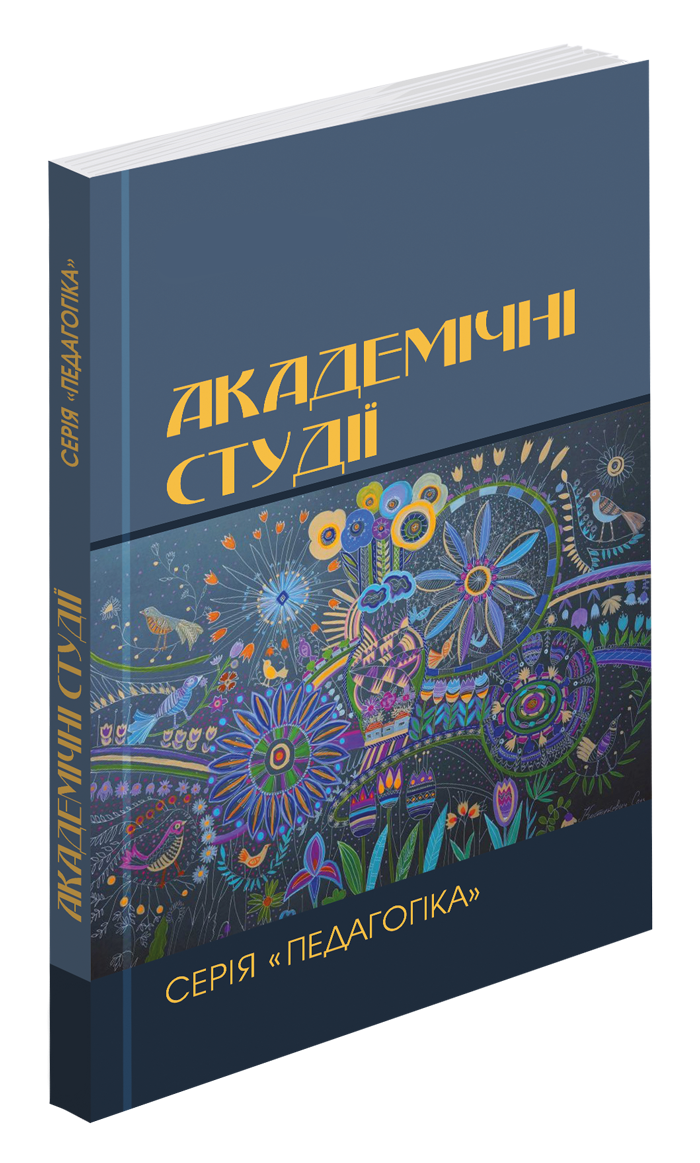Abstract
The article deals with the didactic potential of the learning environment in the context of accessibility of the qualitative and quantitative diversity of its components for participants in the educational process. The features of a closed learning environment functioning within a particular educational institution and its didactic limitations, in particular, territorial fixity, staff constancy and limited access to information resources and pedagogical technologies, are identified. Attention is focused on the need to introduce open education technologies as a means of overcoming the didactic limitations of a closed educational environment. The contribution of domestic and foreign scholars to the study of open education, in particular its principles, technologies and mechanisms of implementation, is analyzed. The main characteristics of open education are defined: accessibility, flexibility, parallelism, modularity, cost-effectiveness, internationality and coordination, which provide equal access to educational resources regardless of the place of residence or social status of students.The role of digital technologies in the development of open education, in particular massive open online courses, virtual learning environments, adaptive learning and cloud platforms, is considered. Their effectiveness in personalizing the learning process, increasing its flexibility and promoting lifelong learning is analyzed. The importance of informational training of future vocational teachers in the context of open education, including the introduction of virtual educational environments and the formation of informational competencies for effective work in the digital environment, is emphasized.The necessity of integrating the principles of open education into educational programs is emphasized, which will contribute to the development of critical thinking, the ability to self-education and individualization of the educational process.The main directions for improving the system of teacher training in the context of digital transformation of education are identified. The possibilities of distance learning, personalized educational trajectories and innovative educational technologies that contribute to the creation of flexible and adaptive virtual educational environments are analyzed.
References
Биков В. Ю. Відкрита освіта і відкрите навчальне середовище. Теорія і практика управління соціальними системами: філософія, психологія, педагогіка, соціологія. 2008. № 2. С. 116-123.
Биков В. Ю. Відкрите навчальне середовище та сучасні мережні інструменти систем відкритої освіти. Науковий часопис НПУ імені М. П. Драгоманова. Серія 2: Комп'ютерно-орієнтовані системи навчання. 2010. №. 9. С. 9-15. URL: http://nbuv.gov.ua/UJRN/Nchnpu_2_2010_9_4.
Відкрита освіта: інноваційні технології та менеджмент: кол. монографія / за наук. ред. М. О. Кириченка, Л. М. Сергеєвої. – Київ: Інтерсервіс, 2018. – 440 с.
Коржилова, О. Ю. Відкрита освіта як глобальна освітня система: стан та розвиток. Педагогічні науки: теорія, історія, інноваційні технології. 2014. № 3, 48-54.
Кузьмінська, О. Теоретико-методичні засади проєктування і застосування цифрового освітнього середовища наукової комунікації магістрів-дослідників. дис доктор педагогічних наук: спец.. 13.00.10, Національний університет біоресурсів і природокористування України, Київ. 2020. URL https://nrat.ukrintei.ua/ searchdoc/0520U101606/
Шевчук Л.Д., Яшанов С. М., Шевчук Б.В. Інтеграція моделей навчання інформатичних дисциплін в інформаційно-освітньому середовищі закладу вищої педагогічної освіти. Актуальні питання гуманітарних наук. Дрогобич: Видавничий дім «Гельветика», 2021. Вип. 39. Т. 3. 296–301.URL: https://doi.org/10.24919/2308-4863/39-3-47.
Шмиголь, М. Ф., & Юшкевич, Ю. С. Інформаційне суспільство в Україні: реальність та виклики. Наукове пізнання: Методологія та технологія № 1(51) 2023 С. 4-9.
Юшкевич, Ю. С. Модернізація освіти в умовах європейської інтеграції України. Гілея: науковий вісник, №141 (2)), 2019. С.165-168.
Collis B., Moonen J. Flexible learning in a digital world. London: Kogan, 2021. 237p.
Petrov, V., Нrechanovska O., Shevchuk, B., Zakusylo, M., & Lekakh, A. El potencial de la realidad virtual en el modelado de procesos científicos complejos para la educación a distancia: una revisión del alcance. Revista Eduweb, 18(4), 2024. С. 89–103. https://doi.org/10.46502/issn.1856-7576/2024.18.04.6

